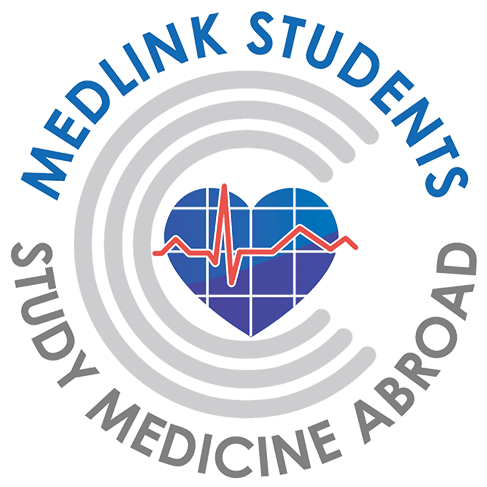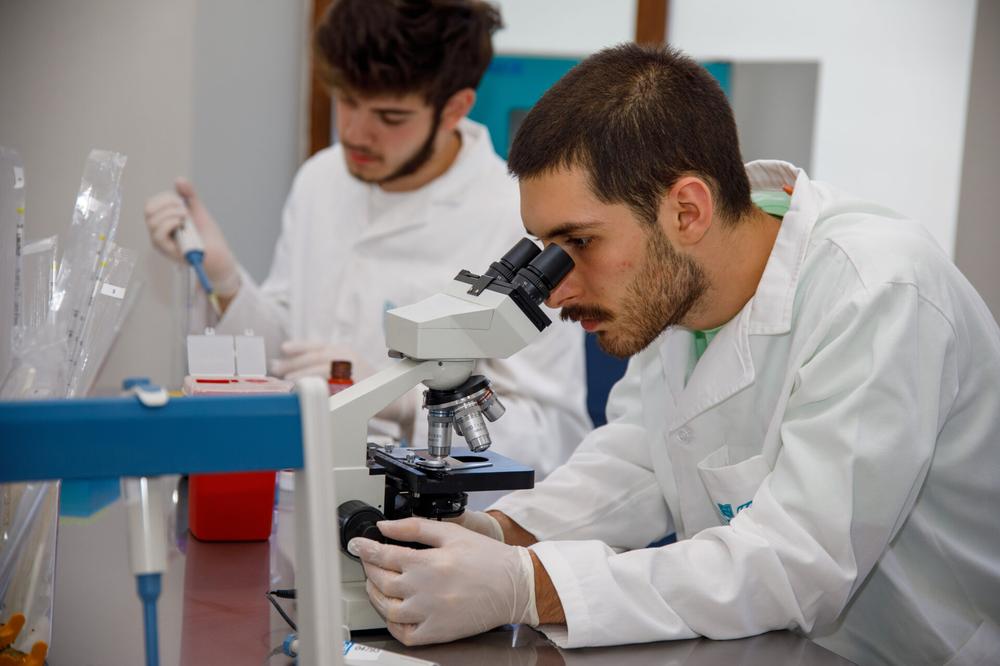Supporting Your Child’s Dream: A Guide for Parents on Studying Medicine Abroad

Seeing your child aspire to become a doctor or dentist is both inspiring and nerve-wracking, especially when that dream leads them abroad. As a parent, it’s only natural to have questions, concerns, and a strong desire to ensure their safety, success, and happiness.
Studying medicine abroad is becoming an increasingly attractive option for many students, thanks to high-quality education, internationally recognised degrees, and often a more affordable pathway into the medical profession. However, as a parent, you want to be sure this decision is the right one for your child’s future.
This guide is here to walk you through everything you need to know to support your child in this journey. From university legitimacy to getting settled abroad, career prospects, and beyond, we’ll cover it all to ensure your child receives the best education while staying safe and supported.
We’ve also added a checklist at the end of the blog to help you keep track of what to do and when.
The key takeaways from this blog include:
- International graduates can return to practise medicine or dentistry in the UK, the US, or any destination, as long as they fulfill licensing requirements.
- Accreditation and international recognition are essential when deciding between university options.
- Choosing a student-friendly and safe destination with low crime rates guarantees ease of mind for the entire family.
- Consider both tuition fees and living costs when budgeting.
- Students often settle in faster when practical details like visa, accommodation, banking, and SIM cards are sorted out early.
- Staying in touch from afar, while allowing space, helps support your child’s independence and wellbeing.
- Getting expert support can reduce stress and prevent common mistakes throughout the process.
Table of Contents
- 1 Addressing Parents’ Most Common Concerns
- 1.1 1. Is the university legitimate and internationally recognised?
- 1.2 2. Will my child be safe living in a foreign country?
- 1.3 3. Can we afford the total cost of studying abroad?
- 1.4 4. What if my child struggles academically or emotionally?
- 1.5 5. Will my child be able to become a doctor back home after studying abroad?
- 2 The Application Process Made Simple
- 3 Preparing for Life Abroad - What to Expect in the First Weeks
- 4 Next Steps: How to Begin the Journey
- 5 Quick Checklist for Parents
- 6 Frequently Asked Questions
- 6.1 Is studying medicine abroad a good option for my child?
- 6.2 Will my child be able to practise medicine in the UK after graduating abroad?
- 6.3 Is it safe for my child to live and study abroad?
- 6.4 How can my child adjust to a new country and culture?
- 6.5 Will the medical course be taught in English?
- 6.6 What if my child struggles academically while studying abroad?
- 6.7 How long does it take to become a doctor when studying abroad?
- 6.8 Can parents visit their children abroad easily?
- 6.9 How do I know which universities are legitimate and trustworthy?
Addressing Parents’ Most Common Concerns
An increasing number of Western students choose to study abroad, and for good reason. Here are some of the most common questions parents have asked us about studying medicine and dentistry abroad:
1. Is the university legitimate and internationally recognised?
Not every medical university meets international standards and has proper accreditation and recognition. Here are the steps to ensure your child’s degree is globally recognised:
The 1st step is to verify that the university is listed in the World Directory of Medical Schools (WDOMS). This is a list co-managed by the World Health Organisation (WHO) that includes only accredited universities.
The 2nd step is to check if your local authorities recognise the school, or if the curriculum fulfills the necessary criteria. For the UK, the governing bodies are the General Medical Council (GMC) and the General Dental Council (GDC), while in the US, it’s the Educational Commission for Foreign Medical Graduates (ECFMG).
Medlink Students offers all parents free consultations with our expert academic advisors to guide you toward choosing the best university according to the goals and ambitions of your child. Speaking with a British Council-certified agent or an experienced student advisor is one of the fastest and most effective ways to make an informed decision for your child’s future.
2. Will my child be safe living in a foreign country?
Moving abroad is a big change, but medical students typically study in safe, student-friendly cities. To ensure your child’s well-being:
- Research the country’s safety ratings, crime rates, healthcare system, and student support services.
- Choose universities with strong international student communities and reliable accommodation options.
- Reach out to current students for a realistic perspective of the country/city, or watch reviews on YouTube.
- Consider pre-departure support programmes with on-ground teams ready to meet your child at their destination.
If you’ve already picked out a destination, encourage your child to connect with fellow students in advance and learn basic local language phrases for an easier transition to studying abroad.
3. Can we afford the total cost of studying abroad?
While tuition abroad can be more affordable than medical schools at home, it’s crucial also to consider additional expenses, like living costs, study materials, etc.
Research the average amount students spend per month at their destination and create a realistic budget, including tuition, rent, food, health insurance, and travel. Some students enjoy taking on part-time jobs to gain early financial independence, get used to the local culture and work environment, or just help out a bit with the budget.
If a particular medical school has already caught your eye, we have included both tuition fees and average living expenses for every university on our site. You can also consider seeking financial planning support to prevent unexpected costs and help you budget accordingly.
4. What if my child struggles academically or emotionally?
Medical universities abroad are well aware of the challenges international students may face and often offer strong academic and mental health support.
- Look for universities with tutoring, mentorship programmes, and counselling services.
- Ensure your child has a support network, including international student groups and trusted faculty members.
- Stay connected through check-ins and visits when possible, but remember not to be overbearing. Sometimes it’s best to hop on a quick call and let your child share their experience at their own pace.
5. Will my child be able to become a doctor back home after studying abroad?
If your child plans to return home after graduation, their degree must meet licensing requirements and give eligibility to take the UKMLA to become a doctor in the UK, or the USMLE in the US.
After licensing exams, they will need to register with the governing medical body and complete any required additional training, such as Foundation Years in the UK or Residency Training in the US.
For specialisation training, you can read our blog on How to Become a Dermatologist, which showcases the different pathways across Europe and the United States. Although the article is written for dermatology, the path for different specialities will often be the same or similar.
These are some of the most common concerns we hear from parents, but, understandably, there are other important topics that don’t quite fit neatly into a Q&A format. Things like how to actually apply, how your child can settle in smoothly, and what kind of support they’ll receive along the way.
Let’s take a closer look at each of these.
The Application Process Made Simple
Applying to study medicine abroad requires a ton of research - different application systems, strict requirements & rules, paperwork in another language, etc. It’s no surprise that parents and students alike consider this the most confusing and time-consuming step.
But here’s the good news: it doesn’t have to be.
At Medlink Students, we’ve guided thousands of families through this exact journey with personalised support, diverse options, and zero guesswork. Here’s how we simplify the process:


1. Choosing the right university
Every medical school has its own teaching style, entry criteria, and unique advantages. We take the time to understand your child’s academic background, career goals, and personal preferences to help find the best match that sets them up for long-term success.
2. Getting all documents ready
The paperwork can be a lot to handle - transcripts, personal statements, medical certificates, passport scans, and more, all of which need to be translated, notarised and apostilled. We have a dedicated admissions team that handles all necessary legalities to ensure that every document is prepared correctly.
3. Entrance exams and interviews
Some universities require entrance exams or interviews as part of their admissions process. But there’s no need to worry because through our Student Success Programme (SSP), your child will receive preparation materials, practice tests, and expert guidance to be completely ready to ace any and all exams.
4. Visa requirements
Visa applications often catch families off guard, since they require financial documents, proof of accommodation, and embassy appointments that all need to line up. That’s why we also help parents and students with this process to make sure their journey starts off smoothly.
With proper guidance, the complex process of applying abroad becomes much more manageable. We’re here to help you avoid the stress and let your child focus on kickstarting their future in medicine.
Preparing for Life Abroad - What to Expect in the First Weeks
Starting life in a new country is a huge milestone. For your child, it’s the exciting beginning of something big. For you, it’s a proud and emotional moment, often mixed with questions about how they’ll adjust and what you can do for them.


Before They Go: Getting Ready for the Journey
A little preparation can go a long way in making the move abroad easier for both students and parents.
One of the 1st things you should take care of is finding safe and comfortable accommodation close to campus. Some medical schools have dorms, which are ideal for 1st year students, but many opt for private renting for a bit more independence. The Student Success Programme ensures that you get trusted housing options to help you find safe and reliable accommodation near campus.
Once that’s taken care of, we will also provide a packing checklist and travel advice with airport tips. After prepping for the flight, we can give pointers about the local culture and etiquette guides to help your child fit in seamlessly
Parents often tell us that once the practical side was under control, it gave everyone space to focus on the emotional side of saying goodbye and looking at what’s ahead.
Once They Arrive: Helping Them Feel at Home
The first few weeks are essential for setting the tone of the entire educational journey, and that’s exactly why our support doesn’t stop after the application is done. We’re still here to help your child get settled and find their footing, including:
- Help with opening a local bank account and setting up a mobile SIM card
- Advice on accessing healthcare, insurance, and local emergency services
- Connecting with fellow students and upperclassmen at the same university
- Guidance on registering for classes and managing their new schedule
- Ongoing well-being support to help them ease into their new environment, both socially and academically
We understand how important it is for parents to know their child isn’t struggling. That’s why we provide support every step of the way through our team of doctors, on-ground specialists, and diverse student community.
How to Stay Connected from Afar
One of the biggest adjustments for parents is learning how to stay in touch from a distance without being annoying or pushy. It’s natural to worry, especially during the first few months, but staying involved in the right way can strengthen your relationship and help your child become independent.
Here are a few gentle ways to stay connected without being overbearing:
- Set a regular time to check in, like weekly calls or video chats, that can give you both something to look forward to without feeling intrusive.
- Let your child take the lead in conversations by asking how they’re really doing, but give space for them to share what they’re excited about or proud of.
- Celebrate all their milestones, whether it’s passing an exam, making a new friend, or talking a bit in a new language.
Sending little reminders of home, like care packages, handwritten notes, or postcards with family news, can make a huge difference.
Why This Matters to You
Studying medicine or dentistry abroad can open the door to a very promising future, but only if it’s done right.
Every year, families unknowingly fall into common traps: enrolling in unrecognised universities, missing critical deadlines, or neglecting to prepare for life abroad. These mistakes can result in severe consequences, including wasted time, lost money, and the setback of being left without a viable path to becoming a doctor.
As a parent, your involvement and decisions can and will shape your child’s future. The difference between a smooth, successful journey and a stressful, costly waste of time often comes down to one thing - informed decision-making.
Getting it right the first time means giving your child the strongest foundation for becoming a successful doctor or dentist.
Next Steps: How to Begin the Journey
Whether you’re just starting to explore your options or are already helping your child apply, remember that you don’t have to figure it all out alone.
At Medlink Students, we specialise in making this process as smooth and stress-free as possible for everyone involved. From finding the right university to sorting visas, preparing for departure, and providing ongoing support once your child is abroad, we’re here every step of the way.


Book a free consultation with one of our academic advisors. We’ll answer all your questions and help you explore the best options for studying abroad.
Quick Checklist for Parents
☑ Go through all suitable university options before deciding.
☑ Confirm the university is accredited and recognised.
☑ Review post-graduation licensing requirements for your home country.
☑ Calculate the total cost of tuition fees + living expenses, and plan a budget.
☑ Learn about the local culture to help settle in.
☑ Research visa requirements and prepare the necessary files.
☑ Prepare the university application documents in advance and get them translated, notarised and apostilled.
☑ Secure safe & comfortable accommodation.
☑ Plan travel and arrival logistics.
☑ Help your child open a local bank account and get a SIM card.
☑ Find academic and emotional support services.
☑ Keep in touch and celebrate your child’s achievements.
And if this all feels a bit much, don’t worry. You can skip the stress entirely and let our team handle everything.
Frequently Asked Questions
Is studying medicine abroad a good option for my child?
Yes, for many students it’s a fantastic alternative, especially if they face limited places or high tuition costs at home. Medical universities abroad often offer globally recognised degrees, lower tuition, and an accessible entry point into the profession.
Will my child be able to practise medicine in the UK after graduating abroad?
Yes, as long as they graduate from an internationally recognised and accredited university. After getting their degree, they will be able to take the UKMLA licensing exam and register with the GMC.
Is it safe for my child to live and study abroad?
Yes, most countries that host international medical students are safe and student-friendly. Best practice recommends looking at the country/city’s safety ratings and crime rates before deciding.
How can my child adjust to a new country and culture?
Good preparation is the best way to ensure a smooth transition. Learning a few basic phrases in the local language, connecting with fellow students, and receiving pre-departure guidance can go a long way. Most students adjust within the first few months.
Will the medical course be taught in English?
Yes, many of the top medical universities offer programmes entirely in English, specifically for international students.
What if my child struggles academically while studying abroad?
Studying medicine is tough everywhere, but many universities offer academic support, tutoring, and student communities. Students also seek help from external support services or mentoring networks like the Student Success Programme.
How long does it take to become a doctor when studying abroad?
Most international medical degrees take 6 years. After graduation (regardless of where they’ve graduated), students need to complete residency, internships or foundation training and pass licensing exams to practise in their chosen country.
Can parents visit their children abroad easily?
Absolutely. Most parents visit during holidays or when helping their child settle in.
How do I know which universities are legitimate and trustworthy?
Look for universities with:
- Accreditation from recognised education bodies
- International recognition
- Listings in the World Directory of Medical Schools
- Positive graduate outcomes and reviews
Leave a Reply


About Medlink Students
Leading international recruitment company for medical students in Europe. British Council Certified Agents. 10+ years of experience and more than 10,000 students advised.








